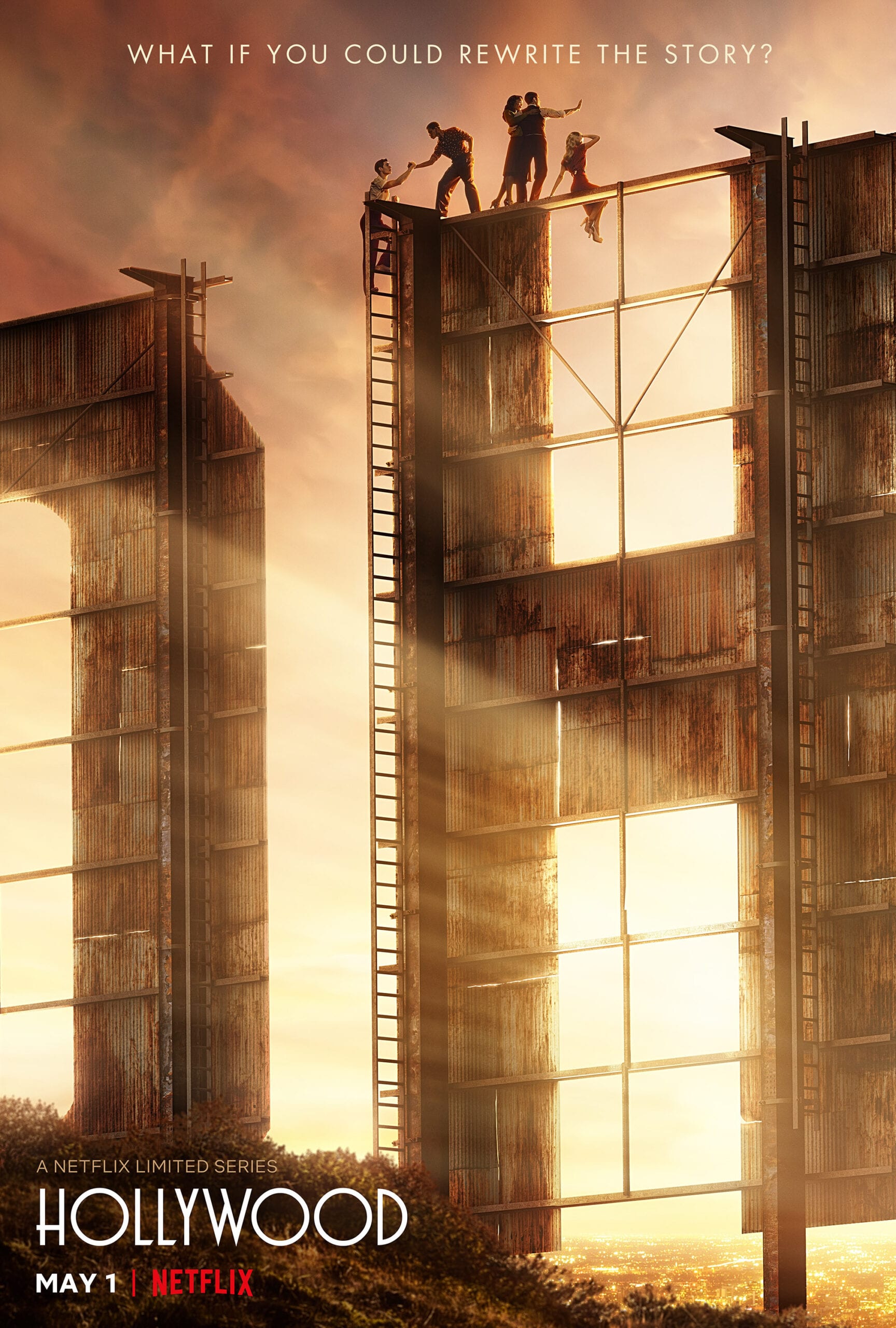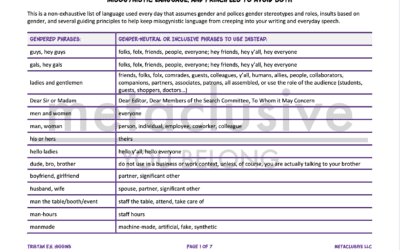Tonight, we finished watching the last three episodes of Netflix’ original series, Hollywood, and I was in tears several times. That wasn’t really anything new, as I am a light touch when it comes to tearing up. I’ve been known to cry at commercials – and not just the holiday variety. But tonight was different. I sat watching the credits and the tears streamed down my face. I tried to understand why, and the best I can gather is that the possibility of representation and inclusion, and how it might change society, affected me tremendously.
I think I can write this without spoilers . . . but just in case, if you want to avoid some insight that isn’t immediately apparent in the show, save this article for later. The show envisions what Hollywood would have looked like if people consistently shoved out of the spotlight were instead pushed into it – and, given the chance to succeed there. The story follows several struggling artists on their hopeful rise to the top, and the studio that can launch them or bury them. We have a black, gay writer trying to prove he can write any story – not just Black stories; a Black starlet on contract with the studio who can only get parts as a domestic, despite her leading-lady talent; a promising director who is half-Filipino but passes as white and is not content with pulling up the ladder behind him as he reaches new heights; a white, gay actor being taken advantage of because he is in the closet; and finally, we have a white, straight, farm-raised, dimpled, leading man type who turns tricks to get by. An integral part of the story is that the studio is run by a Jewish woman and a closeted gay man and it is not clear whether the newcomers change them, or they change the newcomers.
Though they are not young, struggling artists, we also have a Chinese-American actress who loses an Oscar-winning role to a white actress who “puts on yellow face,” a Black woman who actually won an Academy Award but was not able to sit in the theater to receive it, and several mature white woman who are – of all things – sexual. Reading this again, I am frankly shocked that we have this kind of cast in a mainstream show. These characters are not playing the mysterious, menacing villains or laughable caricatures of thug, gay best friend, single mother not making it, nerdy Asian kid, or matronly woman. They are the center of the series and they are integral to the story.
Here, we have a vision of Hollywood where powerful white people take a stand to support Black artists. We have brave Black women fighting to walk into the theater – through the front door – where they might receive an award that same evening. There are men coming out despite the bombshell that it might drop on their careers. Yet, the story isn’t a coming-out story. I don’t think it is a race story, either. To me, it feels like the most hopeful longing of how American history might have been different. And then, the possibility creeps in. If it had been different, where would we be now?
Just imagine if a movie had been penned by a Black, gay writer and starred a Black woman in 1947 – before schools were ordered to be desegregated and before Blacks and whites were allowed to marry. It wasn’t until 2009 that Geoffrey Fletcher became the first Black writer to receive an Oscar for adapted screenplay (Precious), and not until 2018 did a Black writer win in the original screenplay category – Jordan Peele for Get Out. No Black woman won an Oscar for best actress until 2001 when Halle Berry took home the much-delayed honor for Monster’s Ball (Hattie McDaniel won for best supporting actress in 1939 for her portrayal of Mammy in Gone with the Wind).
Imagine if one of the major studios had been run by a woman in the 40s or 50s, something that wouldn’t be accomplished until 1980 by Sherry Lansing. Would we still have had decades of women relegated to the kitchen and being excited by new appliances? What if men and women were able to be their true selves – to hold hands with the one they loved in public? I tried to track down the first major Hollywood studio to feature a love story between two men, and have inconclusively landed on Brokeback Mountain, released in 2005. If these milestones had been accomplished in 1947 (or possibly not have been needed at all), there would have been no Hays Code , no McCarthyism.
Perhaps there would have been no need for that walk over the Edmund Pettus Bridge in Selma (1965), no Stonewall riots in New York City (1969), no Montgomery Bus Boycott (1955-56), no bra-burning at the Miss America pageant (the burning didn’t happen but the protest did, in 1968). We would be so much closer to the America that I want to see today if the history portrayed in Hollywood here was real. I would have been able to be myself in high school, maybe even middle school. I would not have had to stop several classes short of a minor in Queer Literature for fear that it would out me on my college transcript. I won’t even get into the lost souls who took their own lives in desperation, the racial murders, and the terror of cross-burning, or the millions of teens kicked out of their homes and families. If we had gotten started on civil rights almost 20 years earlier, how much further along the road to equity and equality would we be now? Would we still see police officers with their knees on George Floyd’s neck?
The promise of this America, one where I can be myself, where my bravery is rewarded rather than punished, where Black men and women feel protected by the justice system and can pursue any dream they have, where women are allowed to be powerful and in control, moved me to tears. I know that my tears do not produce action; they do not promote change. I am devoted to creating the America that I have to believe can and will exist, and maybe that is why Hollywood made me cry. Knowing that others share my vision gives me hope – hope that someday my tears will be tears of joy.



